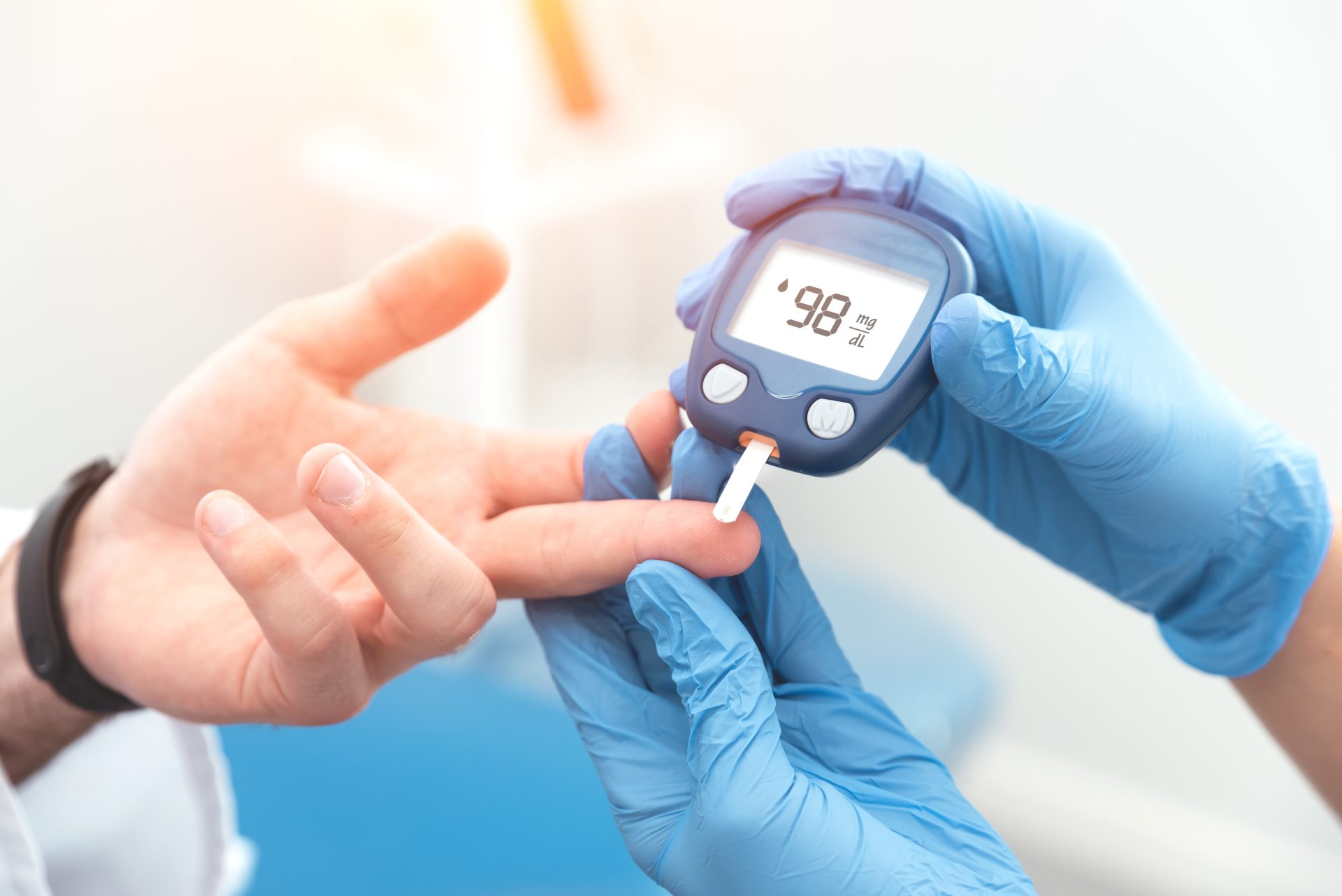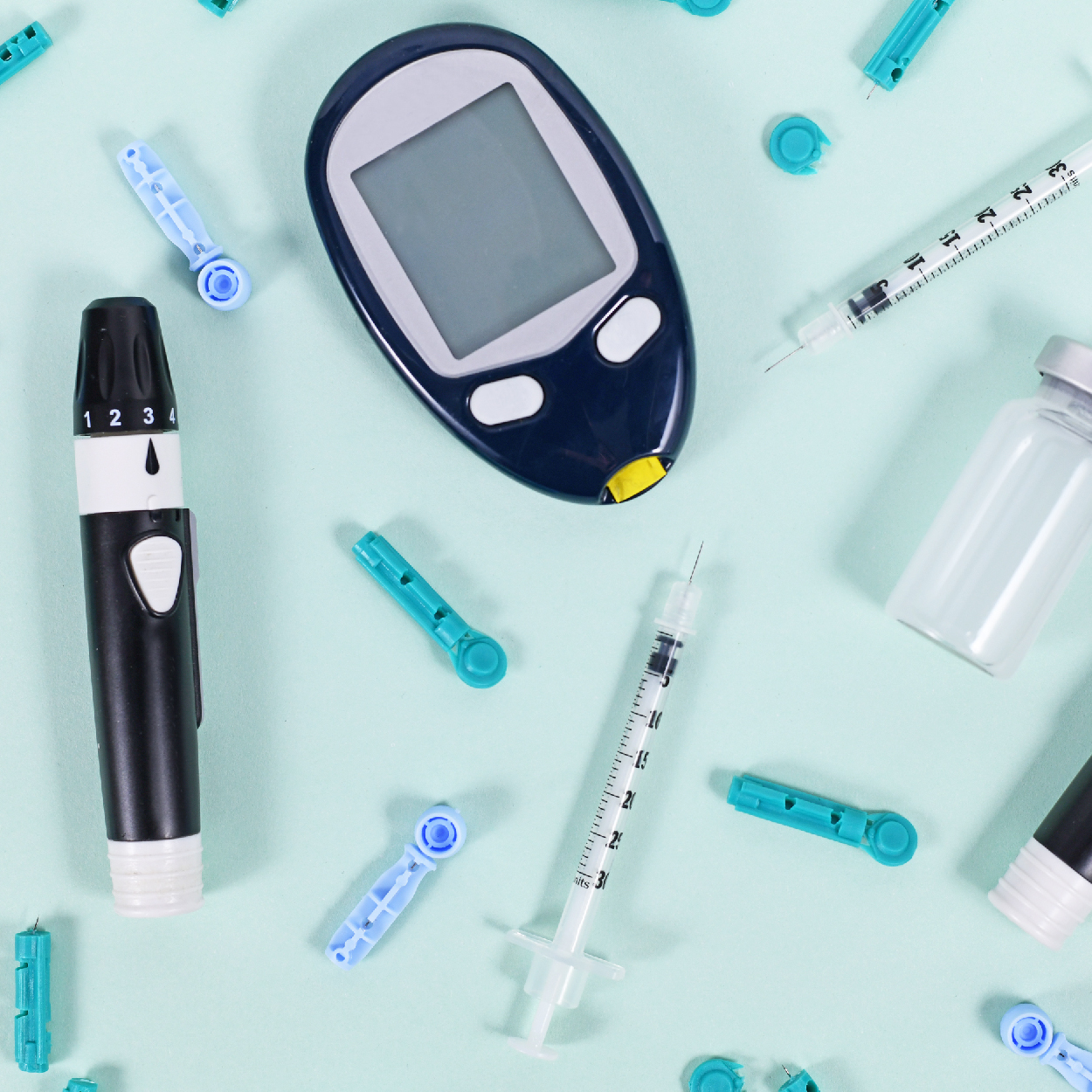This blog will explore the ins and outs of magnesium. Why we need it, how much we need, foods high in magnesium, medications that affect magnesium status and what the research is showing about the relationship it has to diabetes.
Magnesium in the Human Body
Did you know that magnesium makes up approximately 0.05 percent of the human body? (1) This may seem to be a very small amount, but magnesium is the fourth most common mineral contained in the body. (2) An adult human body contains approximately 25 grams of magnesium. (3) It is involved in over 300 metabolic reactions and almost half is contained in our bones, almost all of the other half is in our body organs and tissues and only 1 percent is found in our blood. (2)
Most adults need between 310-420 mg/day of dietary magnesium but is estimated that only 40 percent of people in the United States eat the recommended amounts. You can look at the amounts needed by age groups and for pregnant and lactating women here.
It is speculated that the lack of dietary magnesium contributes to many chronic diseases. Chronic inflammatory stress has been shown to be influenced by low magnesium levels which may be a factor in obesity. (2)
Magnesium is a necessary component for important functions in every part of the body. This includes protein synthesis, energy metabolism, muscle contraction (including the heart), blood pressure and nerve function. We must not forget that magnesium is also involved in the metabolism of both insulin and glucose. (2) Its relationship to diabetes will be discussed later in the article.
Please note that taking excessive supplementary magnesium can be toxic. The upper limit of safety for adults and children over the age of 9 years is 350 mg/day. 350 mg/day for adults and children ages 9 and up. (4) Large doses can be fatal. (5)
A sample of foods that are high in magnesium
(Carbohydrate values are included to help you count carbs to control diabetes)
| Food | Milligrams of Magnesium | Grams of Carbohydrate |
|---|---|---|
| Cooked Oatmeal (1 Cup) | 53.8 | 25.6 |
| Skim Milk (1 Cup) | 27 | 12.2 |
| Beets (1 Cup Whole Cooked) | 37 | 16.2 |
| Broccoli (1 Cup) | 24 | 10 |
| Raw Spinach (1 Cup) | 23.7 | 1 |
| Quinoa (1/2 Cup) | 59.2 | 19.7 |
| Coffee Black Brewed (1 Cup) | 7.11 | 0 |
| Baked White Potato w/ Skin (small, 138g) | 38.6 | 29.2 |
(The program “ Foodworks” was used as the database for values)
Some medications that are common for people with diabetes to take cause an effect on Magnesium status
1. Diuretics (given for high blood pressure and heart conditions)
Common diuretics include thiazides and loop diuretics. In our bodies there is a magnesium channel that helps retain magnesium. Medications in the thiazide classification effect the absorption of magnesium leading to a loss of magnesium in the urine and can potentially cause hypomagnesaemia. Taking thiazides may also contribute to hyperglycemia. (6) There are diuretics available that spare magnesium. (7) Consult with your physician to see if these would be recommended if needed. Loop Diuretics are more powerful than thiazides and are needed sometimes to control edema. (6) They also deplete magnesium values. Again, consult with your physician about this issue.
2. Sulfonylurea’s are a classification of medications used by some type 2 people with diabetes to help control their blood glucose levels. When magnesium salts are given for low magnesium levels or when a person takes magnesium containing antacids, with the use of sulfonylurea’, this may cause a problem with blood glucose control. (8, 9) Taking these substances may potentially lead to hypoglycemia as they can increase the amount of sulfonylurea’s absorbed by the body. (10)
This is a point that should be discussed with your doctor as he/she may want to evaluate your condition and change your dose. Make sure you test your blood glucose and treat any lows as necessary.
3. Calcium Chanel Blockers (a type of medication for conditions including high blood pressure) If you increase the amount of magnesium you take, your blood pressure may drop substantially and cause side effects and problems relating to a very low blood pressure. (10)
All medications including over-the-counter medications and supplements should be discussed with your doctor and pharmacist. Ask if any medication you take effects magnesium status. Here is a partial list of medications that affect the body’s magnesium status.
Magnesium and Diabetes
Research has been conducted to evaluate how appropriate magnesium levels in the body affects people with diabetes. Proper glucose and insulin metabolism is effected by magnesium. (2)
1. Diabetes Prevention
A large meta-analysis was conducted involving over 500,000 individuals in 13 studies was published in 2011. Conclusions were amazing and found that “magnesium intake is inversely associated with the risk of type 2 diabetes in a dose response manner.” (11)
2. Type 2 diabetes
When people have type 2 diabetes, they tend to have an increased loss of magnesium through their urine. This may affect insulin action and diabetes control. (5)
In a study of 60 individuals with type 2 diabetes, magnesium supplementation of 300 mg/day of magnesium chloride increased insulin sensitivity. (2)
3. Type 1 diabetes
Low magnesium levels are often found in people with type 1 diabetes. It has been found that people with type 1 diabetes and low levels of magnesium have more damage to their eyes due to diabetes and also more neuropathy. (12)
As you can see, low levels of magnesium can affect diabetes prevention, people with type 2 diabetes and people with type 1 diabetes. A serious discussion should take place with healthcare professionals on magnesium status and if more dietary magnesium is needed or even supplements. Do not take supplements without the approval from your physician as you want to make sure you will have benefit and do not harm.




